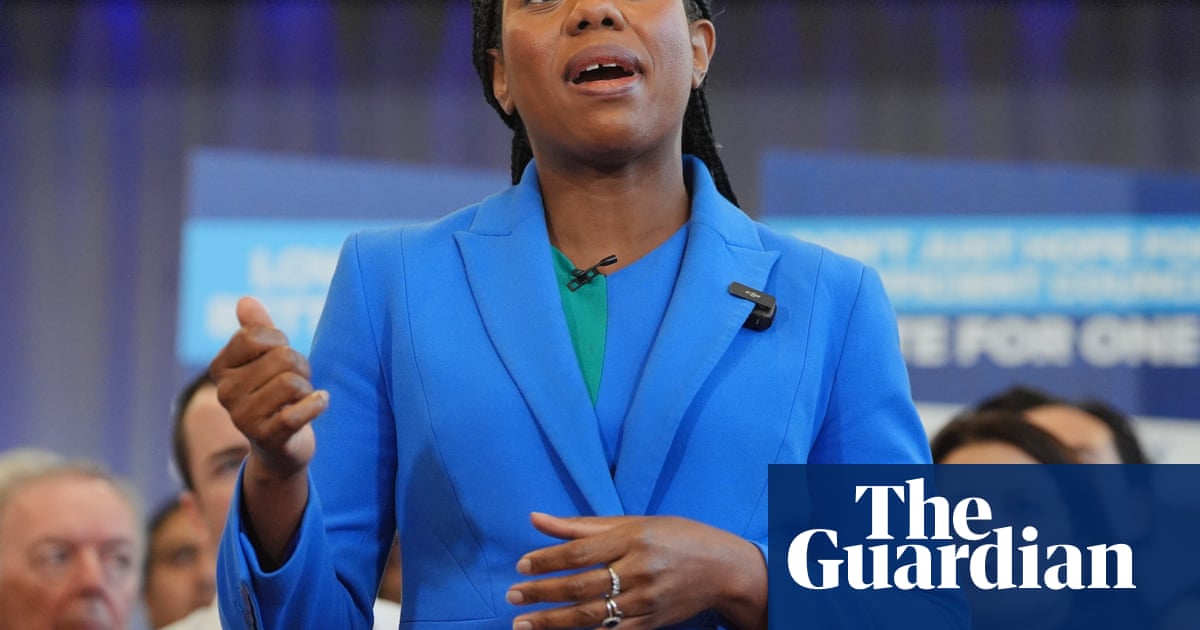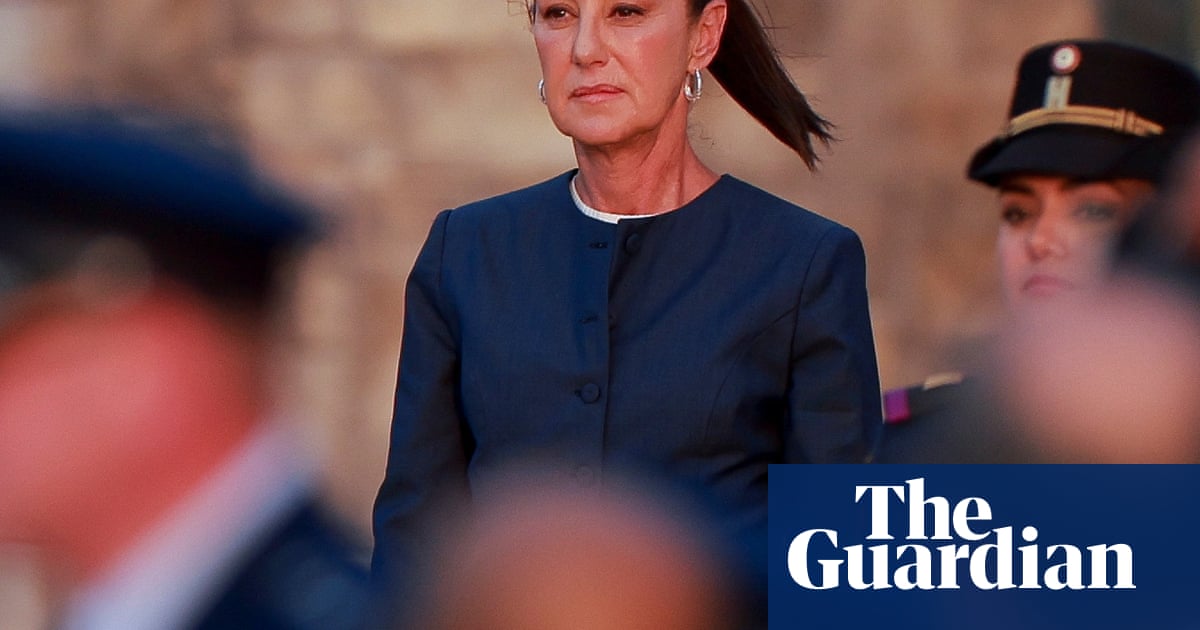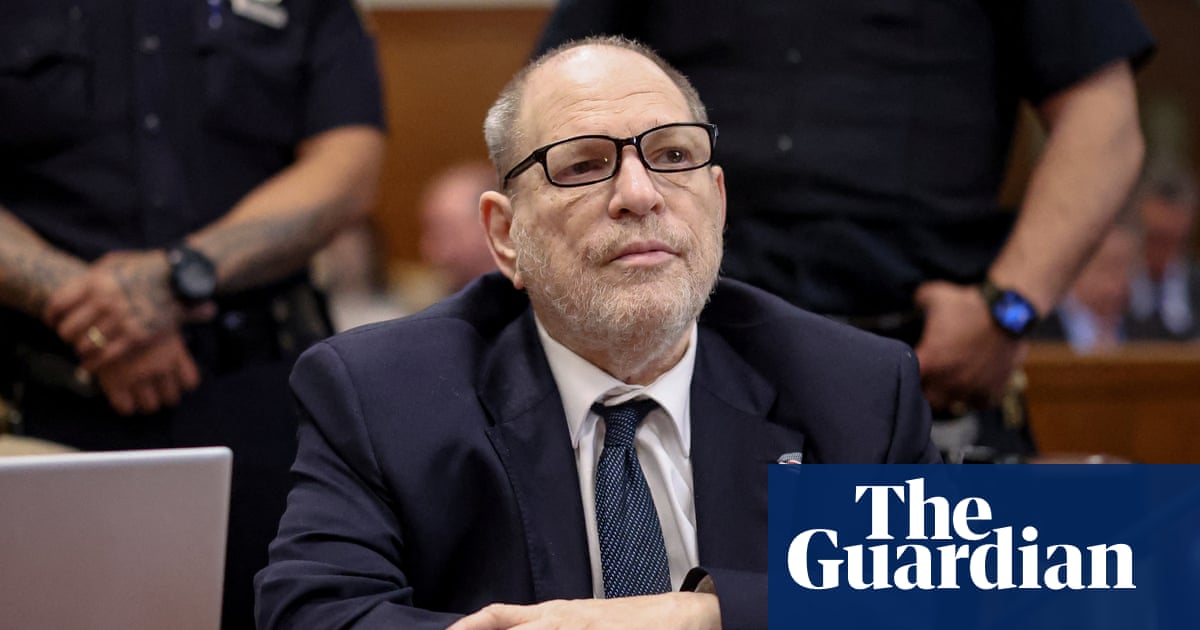Labour MPs must realise welfare system 'needs reform', says Reeves
Labour MPs must realise the welfare system needs reform, Rachel Reeves has said, as more than 40 MPs have written to the prime minister urging him to pause and reassess planned cuts to disability benefits (see 10.33am BST).
Asked what her message to Labour MPs worried about the welfare cuts was, the chancellor told broadcasters:
I don’t think anybody, including Labour MPs and members, think that the current welfare system created by the Conservative party is working today. They know that the system needs reform. We do need to reform how the welfare system works if we’re going to grow our economy.
But crucially, if we’re going to lift people out of poverty and give more people the chance to fulfil their potential, the focus has got to be on supporting people into work.
Of course, if you can’t work the welfare state must always be there for you, and with this government it will be. But there are many people that are trapped on benefits that are desperate to work, that have been cut out of opportunity for too long. That will change under this government.
Key events Show key events only Please turn on JavaScript to use this feature
The prime minister has declined to rule out changes to the digital services tax as part of a future trade deal with the US.

Speaking to broadcasters on board HMS St Albans during a visit to Norway, Keir Starmer said:
The deal that we signed off yesterday doesn’t cover that.
That’s predominantly focused on steel and aluminium and reducing those tariffs on car manufacturing and reducing the tariffs there, and then future proofing for pharmaceuticals, three really important sectors, and that, as I say, will be measured in thousands and thousands of jobs that will be protected, saved, and will thrive as a result of this.
On digital services, there are ongoing discussions, obviously, on other aspects of the deal, but the important thing to focus on yesterday is the sectors that are now protected that the day before yesterday were very exposed.
Plaid Cymru would focus on “deep problems within the NHS in Wales”, as well as education, economic stagnation and poverty, should it be the party that leads the next Welsh government, Rhun ap Iorwerth said.
The next Senedd election will see Welsh voters use a new proportional system to choose their representatives. Fourty nine seats will be required for an outright majority, with the Senedd being expanded to 96 members.
The previous system had an “in-built bias towards Labour”, the Plaid Cymru leader said.
Ap Iorwerth added:
That changes with the new electoral system that we have in Wales, and it’s a genuine case that wherever people are in Wales, the votes that they cast will contribute towards who can be leading that government next year, Plaid Cymru is putting itself forward as the party to lead that government.
And if people want that, they can have it with me as first minister, the first non-Labour first minister, setting a different direction for governments in Wales.
Parties in Wales are likely to have to cooperate after the YouGov poll published on Tuesday (see 2.08pm BST), the Plaid Cymru leader said, but he continued to rule out a “formal relationship” with Nigel Farage’s Reform UK.
Ap Iorwerth added:
We have two conservative parties in Wales now: the Conservative party, and the Tories on steroids that Reform are: the pro-Thatcher, the pro-Liz Truss, the pro-Trump political party that works against the interests of workers, that works against the interests of businesses in Wales.
I just don’t think that’s the politics that is in the interests of Wales.
Welsh IndyRef 'absolutely could happen in our lifetime', says Plaid Cymru leader
A referendum on Welsh independence could “absolutely” be held within “our lifetime”, Plaid Cymru’s leader has said, reports the PA news agency.
Rhun ap Iorwerth did not shy away from suggesting his party may be the leading political force in Wales aftera poll which predicts Plaid Cymru will have the largest vote share in the 2026 Senedd elections.
Plaid Cymru is projected to be the largest party in the Senedd after the outcome of the election, with about 30% of votes and 35 seats in the Siambr, according to a YouGov poll published on Tuesday. Nigel Farage’s Reform UK would be the second largest party, with 25% of votes, according to the poll.

The Plaid Cymru leader ruled out holding a referendum on Wales leaving the UK in the first term of a Plaid Cymru-led Welsh government, when speaking to the BBC’s Walescast this week. He has previously declined to put a timeline on a referendum, after Plaid’s last leader Adam Price promised such a vote within five years.
But ap Iorwerth told the PA news agency a referendum could form part of a Plaid Cymru government’s platform for the future, once it has built trust with the Welsh electorate.
“The key thing is it’s up to the people of Wales. And I’ve many times said that I would have independence tomorrow, but it’s not what I think that matters,” ap Iorwerth told PA. He added:
It’s what the people of Wales believe, and I absolutely think we can have that referendum and set us off on a different direction as a country within our lifetime.
Should Plaid Cymru pursue such a referendum in future, it would be likely to need support from other parties in Cardiff Bay and at Westminster, which is unlikely to be forthcoming.

Libby Brooks
The thinktank Reform Scotland is holding a fascinating event this lunchtime on the rise of Reform UK north of the border.
Pollster Mark Diffley pointed out that Reform UK continues to poll around half of what it does in the rest of the UK, but this won’t necessarily undermine the impact they could have at next May’s Holyrood elections.
He estimates Reform UK could win about 10% of MSPs next year and emphasises “complete change in culture and context” this would bring to the Scottish parliament.
Ailsa Henderson, the Edinburgh Uni professor who runs the Scottish Election study, underlines how deeply unpopular Nigel Farage himself is in Scotland – only Trump is less popular with Scots – but also that there is space for a rightwing party among an electorate that is both small ‘c’ conservative but hate the Conservative party.
She adds that the SNP have done a lot of Reform UK’s groundwork for them, with their constant messaging about the failure of the Westminster status quo.
There was some question of whether lack of Scottish figurehead mattered, given how successful the party has been in tapping into anger and disillusion.
The panel also discussed the likelihood of Reform UK’s success in English local elections bringing the party more into the mainstream in time for Holyrood and Senedd elections next year.
Labour ‘throwing trans people under the bus’ says transgender councillor

Libby Brooks
One of Labour’s only transgender councillors has resigned from the party, accusing it of “throwing trans people under the bus”.
In a post on X on Friday morning, Dylan Tippetts, who has represented Compton ward on Plymouth city council since 2022, wrote: “I cannot continue to represent a party that does not support my fundamental rights. I cannot as a trans person continue to support the Labour party.”
Tippetts, who was the first Labour councillor to represent the area, will now sit as an independent and confirmed he would not seek re-election.
He said: “The Labour party nationally has thrown transgender people under the bus and has taken us backwards decades. Everyone deserves the right to live peacefully, and the Labour party continues to deny transgender people that basic right.”
Tippett’s resignation comes after senior government figures, including Keir Starmer, welcomed the “clarity” provided by the supreme court’s ruling on biological sex.
Britain’s most senior statistician has stepped down citing “ongoing health issues”, amid criticism over flaws in recent economic data.
Sir Ian Diamond confirmed he has resigned as head of the Office for National Statistics (ONS) with immediate effect.
He said: “It has been an honour and a privilege to lead the ONS over the past five-and-a-half years and I have been immensely proud of the prominent role that independent statistics and data have played in informing the critical decisions of the day.
“Unfortunately I have made the decision that, due to ongoing health issues, I am unable to give the commitment to the role of national statistician that I would like to and feel that it is the right time for somebody else to pick up the baton.”
It comes amid criticism from politicians and Bank of England officials over potential inaccuracies in some of the ONS’s economic data, particularly its labour market survey data.
Downing Street has declined to rule out changes to the digital services tax as part of a future agreement with the US, reports the PA news agency.
Asked whether changes to the tax would be on the table in future negotiations, a Number 10 spokesperson said:
The position on the digital services tax remains unchanged.
Obviously, there are continuing discussions and, as I say, this is the beginning of the process.
This deal marks only the beginning. We are continuing talks on that wider economic deal which will look at increasing digital trade, which is a tremendous opportunity.
And that kind of work on a digital trade deal will strip back paperwork for British firms trying to export to the US, opening up the UK to a huge market that will measurably boost the UK economy.
That deal also opens the way to a future UK-US technology partnership through which our science-rich nations will collaborate in key areas of advanced technology, for example biotech, life sciences, quantum computing, nuclear fusion, aerospace and space.
Conservationists call for new laws to ensure important trees are 'listed' for protection
Conservationists are calling for new laws to ensure important trees are “listed” for protection, like historic buildings, after the Sycamore Gap trial.
The call by the Woodland Trust to improve protection for thousands of trees that have important ecological, cultural and historical value comes after high-profile felling of landmark trees caused public fury.
Two men have been found guilty of felling the “totemic” Sycamore Gap tree beside Hadrian’s Wall in September 2023, and the Forestry Commission is assessing the felling of a 400-year-old oak in Whitewebbs Park, north London, in April, one of only about 100 oaks of that size in Greater London.
According to the PA news agency, the Woodland Trust said that existing protections such as tree preservation orders and requirements for felling licences had limitations and exemptions, such as the type and location of trees protected, and called for better safeguards for the country’s most precious trees.

The charity wants the government to back a proposed law that would “list” heritage trees with exceptional historic, landscape, cultural or ecological importance, similar to the way historic buildings and monuments are listed or scheduled.
Under the heritage trees bill, put forward by Barbara Young in the House of Lords as a private member’s bill, a list of such trees would be created and maintained by a statutory agency. Trees on the list would have provisions ensuring their protection, requiring landowners and occupiers to advertise the tree’s status and take steps to maintain and conserve it, and there would be additional or higher penalties for breaching new “heritage tree preservation orders”.
Adam Cormack, head of campaigns at the Woodland Trust, said the proposed law would provide “a consistent level of protection, conservation and active stewardship for a listed group of trees”.
Several thousand of the most important trees across England could be protected with the scheme, he said, while different legislation would need to be passed in Scotland, Wales and Northern Ireland. He highlighted work in Poland, where a “green monuments” system preserves tens of thousands of trees, and a similar scheme in Romania.
Cormack also pointed to a survey after the felling of the Sycamore Gap tree, which found 88% of people supported legislation to protect the most valuable trees. He said:
Special trees provide a living backdrop to our national history and culture, as well as the stories and lives of our local communities, but they have few legal protections in the UK.
Other European countries have recognised this with legislation in place to protect very old and important trees for their immense ecological, cultural and historical value.
His colleague, Jack Taylor, project lead for woods under threat, added:
There’s a strong national identity behind ancient and veteran trees.
We are not one of the most wooded countries across Europe, but we do have a really strong population of ancient and veteran trees, and that resonates with people. When you see trees like the Whitewebbs oak, it stops most people in their tracks.
Labour MPs must realise welfare system 'needs reform', says Reeves
Labour MPs must realise the welfare system needs reform, Rachel Reeves has said, as more than 40 MPs have written to the prime minister urging him to pause and reassess planned cuts to disability benefits (see 10.33am BST).
Asked what her message to Labour MPs worried about the welfare cuts was, the chancellor told broadcasters:
I don’t think anybody, including Labour MPs and members, think that the current welfare system created by the Conservative party is working today. They know that the system needs reform. We do need to reform how the welfare system works if we’re going to grow our economy.
But crucially, if we’re going to lift people out of poverty and give more people the chance to fulfil their potential, the focus has got to be on supporting people into work.
Of course, if you can’t work the welfare state must always be there for you, and with this government it will be. But there are many people that are trapped on benefits that are desperate to work, that have been cut out of opportunity for too long. That will change under this government.
On unacceptable care, Jim Mackey said the service must “try to get beyond things that have become a bit normalised over recent years that we would never have accepted”.
He added:
Ten years ago, we would have never accepted old ladies being on corridors next to an [emergency] department for hours on end and they have become normal in the NHS.
We’ve got to get ourselves out of that, and everybody wants to get out of it.
He said that even in places “delivering excellence” there are “still things going on there that are completely unacceptable” as he said that driving down variation would help to improve care.
Mackey continued:
There’s lots of examples like that where I think we just sort of gradually moved to a point where we’ve accepted things that we should not really have accepted, and we need to stop accepting.
The hard bit is what we do about it, most people know that, the worry is when they’re desensitised to it … it’s actually not their problem, they have found a way of walking around it. Colleagues used to describe it as ‘learning walk with a limp’.
Asked about independence from politicians, chief executive of NHS England said:
I’ll have no problem telling anybody what I think – if I have a view, I’m going to express it, and if I think something’s wrong, I’m going to say it.
But I’m very confident in the way that I’ve seen Wes work his political team and the prime minister, that they actually don’t want somebody to just sit, just go along with everything, and just roll over and not say if they have a they have a view, and I’ll take that seriously.
Speaking about the demise of NHS England, Mackey also said that it was “naive” to believe an organisation which “is the biggest consumer of public resource in the country” could be politically independent.
“I understood the logic at the time, I think it was probably, in hindsight, a bit naive to think that we could make something politically independent and less directly controlled by the political system for something that is the biggest consumer of public resource in the country,” he said.

 9 hours ago
4
9 hours ago
4













































